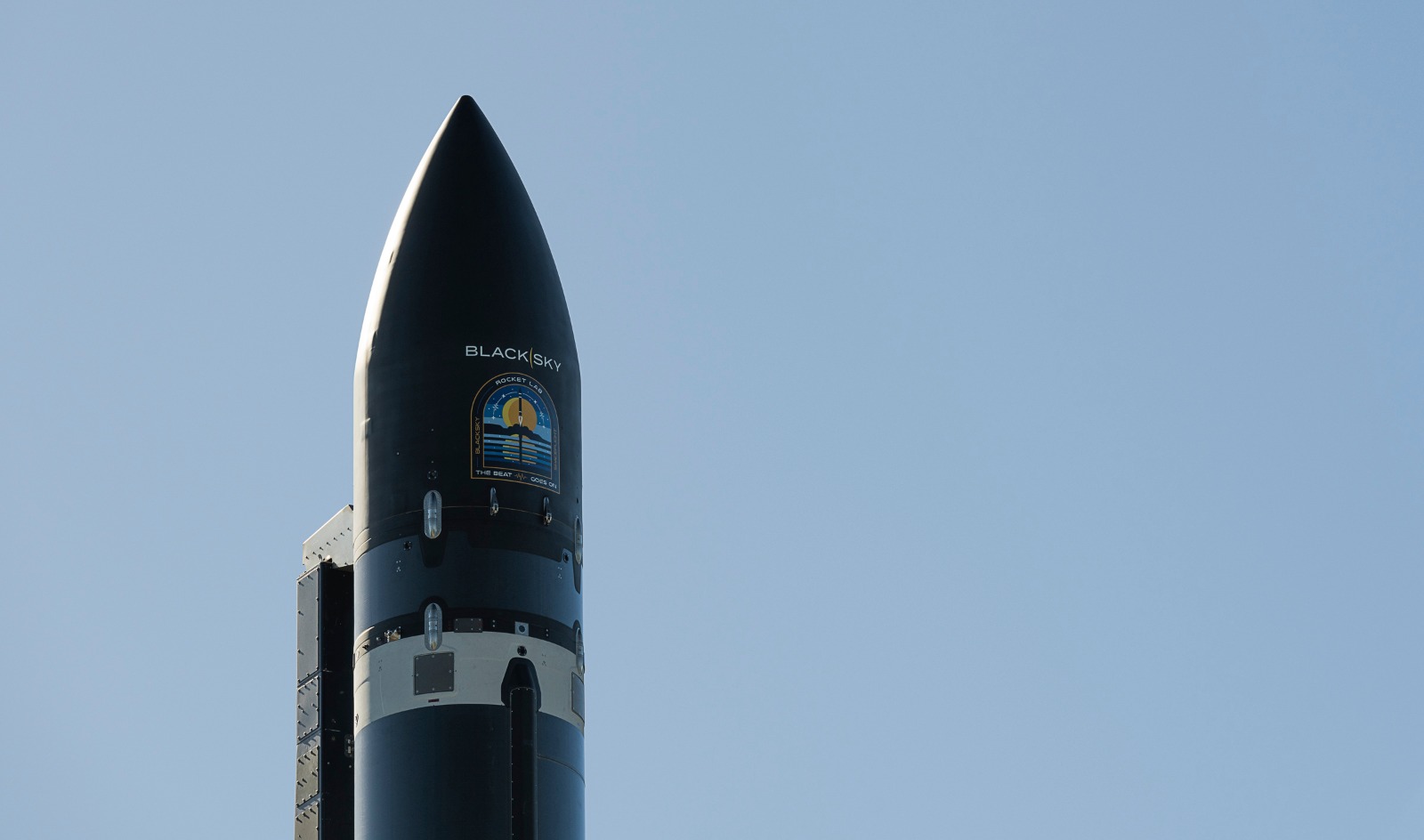
Unless you’re a night owl, you probably missed that last night Rocket Lab launched its third Electron rocket of the year and carrying its final contracted mission for satellite builder BlackSky. This mission also featured the year’s first recovery mission for Electron’s first stage.
Successful deployment of BlackSky’s next two satellites
After a delay of two hours due to space weather, Rocket Lab’s third Electron of the year lifted off from LC-1B from New Zealand. On board were two BlackSky satellites, number 18 and 19, deployed by the rocket’s kick stage into a 450 km orbit. This was Rocket Lab’s fifth mission with BlackSky payloads, not including the failed launch in 2021. In total, Black Sky now has 16 operational satellites in its orbit.
BlackSky, a part of Spaceflight Industries, provides around-the-clock geospatial intelligence to the private sector and government agencies. Like other startup Earth observation companies, BlackSky operates a constellation of SmallSats instead of fleets of car size or larger satellites.
This provides the ability for BlackSky to make regular upgrades to its fleet. Currently, the company is operating its second-generation satellites, with third-generation satellites already in the works.
First recovery mission of the year
A difference in this launch is that it featured a secondary mission of recovering the Electron’s second stage. Rocket Lab has been working towards adapting its Electron rocket to be recoverable. Its current method consists of parachutes that slow the booster down enough to make a gentle splashdown in the ocean.
Initially, Rocket Lab was attempting to recover the booster using a helicopter, yes the Electron’s first stage is that light. However, both attempts were unsuccessful but had better-than-expected sea recoveries. So for this mission, Rocket Lab skipped the helicopter to verify that sea recoveries could be made the primary recovery method.
At the end of the stream, we heard confirmations of good parachute deployments and splashdown, but we have not received word yet on whether the booster has been recovered.
This mark’s the company’s third mission for 2023 and puts their average rate at one launch every month. Rocket Lab is on its way to beating last year’s record-breaking nine launches and the first double-digit year for Electron.
FTC: We use income earning auto affiliate links. More.




Comments